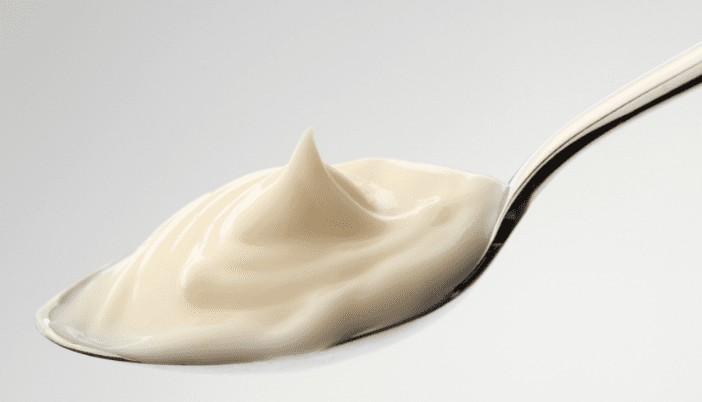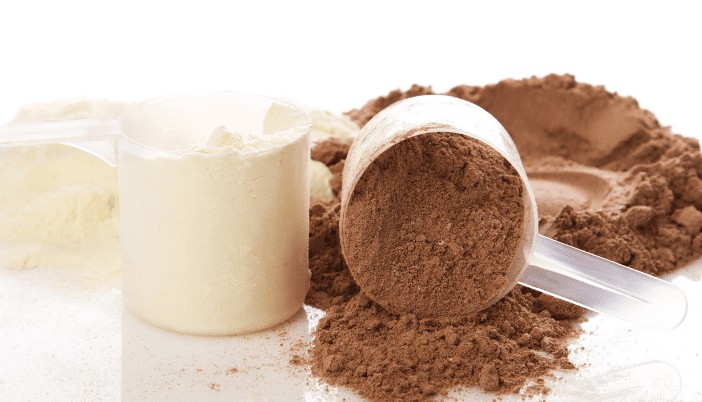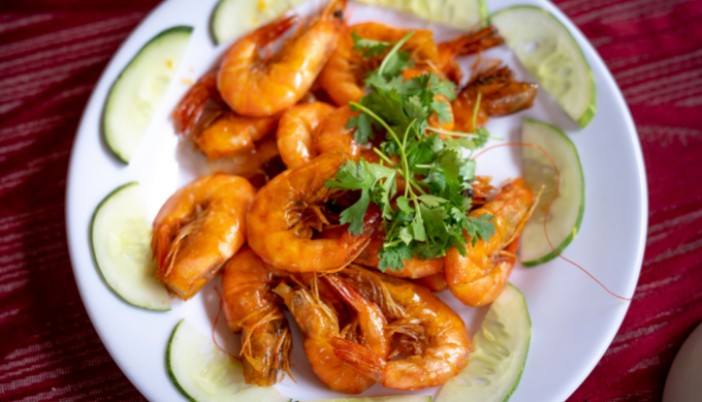Maybellineis it Cruelty Free?
Maybelline has its roots as a mail-order business. Tom Lyle, the company’s founder, commissioned a pharmacist to create a product that enhances the look of eyelashes and eyebrows.
“Lash-Brow-ine” was then sold through magazine ads as a mail-order product.
In 1917, Maybell Laboratories created an additional cosmetic, “Maybelline”.
Again, it was designed for eyebrows and eyelashes. The business grew and Mabell Laboratories was renamed “Maybelline” in 1923.
Now the brand is one of the most recognized within the beauty industry. The growth can be credited to its affordability and ease of use.
But what is Maybelline’s policy on testing its products? Does it use animals?
Yes, it does…
As an Amazon Associate, I earn from qualifying purchases. The links below may be affiliate links. Please read my disclosure policy for more information.
Maybelline and animal-testing
Looking at Maybelline’s FAQs on its site, the company has this to say regarding animal testing:
“L’Oréal no longer tests any of its products or any of its ingredients on animals, anywhere in the world nor does L’Oréal delegate this task to others. An exception could only be made if regulatory authorities demanded it for safety or regulatory purposes.”
That sounds great, doesn’t it? L’Oreal doesn’t test on animals.
However, there are two issues one should have with the above comment from Maybelline. First, we are wanting to know Maybelline’s stance on animal testing.
L’Oreal is its parent company and we know that some brands in the group are certified as cruelty-free. So, why does Maybelline refer to L’Oreals’s policy rather than stating its own?
The other issue lies in the last sentence of the statement. Maybelline can make exceptions on animal testing if required by “regulatory authorities”. That means China.
Maybelline and China
China, under a concerted push by PETA and its supporters, changed the countries animal testing laws.
This is where things can become a little bit complicated. The new rules, which took effect on May 1, 2021 state that animal testing doesn’t apply to:
- General cosmetics: Cosmetics that don’t make a specific claim or aren’t designed to meet a special need. General cosmetics can be things like nail polish, shampoos, and skincare.
- B2C companies: If you are selling your product through a website and shipping it straight to the customer.
- Products made in China but aren’t sold in China.
China still requires animal testing if the products are:
- Special Cosmetics: These are items that make a special claim or are created to meet a specific need.
- General cosmetics which have been reformulated with a new ingredient.
- General cosmetics that don’t have the appropriate paperwork that exempts them from testing.
- Sold in retail stores in China.
Maybelline is currently sold in department stores in China. So that indicates that has to have its products tested on animals.
But, wait there is a major change happening and it’s led by L’Oreal.
According to an article on CampaignAsia.com, L’Oreal is on the move of pulling Maybelline from department stores. The push is motivated by a desire to create a new image for the brand.
What that image encompasses, L’Oreal doesn’t say much other than it’s to:
“…emphasize its unique image of a fashion brand and to better catering consumers’ need”
Moving to a more online presence
L’Oreal’s strategy is to have Maybelline available exclusively in its own stores. That could be a win for animal rights advocates.
Why? Because it allows L’Oreal to have greater control and ownership of the products.
It owns the stores and so could apply to the Chinese authorities for exemption from animal testing.
Another factor that should have animal rights warriors watching carefully is online shopping in China.
Also, L’Oreal is wanting to increase its online sales. One way it is doing so is by limiting the accessibility of products from bricks and mortar stores.
Remember that Chinese animal-testing regulations don’t apply to B2C businesses that sell directly to the customer. This is another way that Maybelline and L’Oreal can start to position themselves as 100% cruelty-free.
Half of L’Oreal’s sales in China are generated online, so it makes sense to focus on this area.
The thing that may still be of concern around animal testing is that L’Oreal doesn’t state what “better catering consumers’ need” means.
Does it refer to pressure for the company to become 100% cruelty-free? Maybe people prefer shopping online as it may be more convenient.
Perhaps it’s cheaper to purchase Maybelline products online than through a department store.
Another thing that has to be considered is that L’Oreal is still going to be using retail stores. They may be operated and overseen by L’Oreal, but they are still retail stores.
Does that require L’Oreal to agree to animal testing? After all, China regulations dictate that cosmetics sold in physical stores need to be tested on animals.
These are things that Maybelline and L’Oreal leave open to speculation.
Maybelline and PETA
PETA does a great job of advocating animal welfare. It recognizes L’Oreal’s attempts toward ending animal testing:
“Over the years, L’Oreal has made positive progress and taken important steps towards ending tests on animals for its products. The company adopted a policy not to test its “finished products” on animals, and eventually adopted a policy not to test its products’ ingredients on animals.
The company has also contributed significant resources to the research and development of non-animal test methods to replace some of the cruel and outdated animal test methods currently still in use. L’Oreal has also established a robust presence in China to advocate for the government to end its requirements for tests on animals for cosmetics sold there.
We applaud L’Oreal for its commitment to and progress in ending tests on animals and promoting non-animal test methods…”
PETA however lists Maybelline and L’Oreal as companies that still test on animals. All because of China.
A word of caution though regarding PETA. It is a world leader for animal rights and is always pushing for change.
However, if you use the search function to look for certain companies, you can have articles come up as a result.
The articles may not mention the brand that you have searched for and that could lead to “guilt by association”. It’s up to you to do your due diligence and not just take one organization’s word that a company isn’t cruelty-free.
On the other hand, you can’t always believe companies that claim to not test on animals don’t. If they don’t how do they know others in the supply chain follow the same principles?
After all, Leaping Bunny makes this pithy observation:
“By 1996, ‘cruelty-free’ shopping had become popular, but it was also confusing, sometimes misleading, and ultimately frustrating. Companies had begun designing their own bunny logos, abiding by their own definition of ‘cruelty-free’ or ‘animal friendly’ without the participation of animal protection groups.”
Always do your homework.
I can’t believe it’s not Maybelline
If you are wanting to look like you’re “Born With It” yet want to use cruelty-free products, don’t fret. There are plenty of brands that will give you that Maybelline look without the need for animal testing.
Aveda
Aveda has its heritage in holistic beauty. Its founder, Horst Rechelbacher, had a mother who was a herbalist, so gained an appreciation for natural products.
Time in India cemented Horst’s resolve regarding his holistic worldview:
“We are the earth. We are soil. We are water. We are everything. So go organic if you can. So become a farmer. Grow in your own house. Grow peppermint and make your own tea. Celebrate life.”
This is the inspiration that drives Aveda as a beauty company. It offers a variety of products from makeup, fragrances, skincare, and much more.
Since January 1, 2021, Aveda has been 100% vegan.
Regarding animal testing, it is something that the company has avoided since it started:
“Aveda is a cruelty-free brand. We do not test on animals and never ask others to do so on our behalf.
Our products are “people-tested.” Being a cruelty-free brand is an important part of our mission to care for the world we live in and for those we live with…”
To underscore the fact that Aveda is cruelty-free, it lists animal welfare achievements that it has been involved with such as:
“Over the past decade, our network has raised over $8 million for grassroots organizations that help protect endangered plants and their environments, including the animals therein.
We support the Endangered Species Act and, in 2006, we sent more than 500,000 signatures from our network and guests to the United Nations and the White House to support it.”
Caring about you, your beauty (both externally and internally), other people, and animals is truly a holistic approach.
Essence Cosmetics
Essence has you covered. Well, at least when it comes to your face, lips, eyes, and nails that is.
It began in 2001 thanks to the entrepreneurial spirit of Christina. Her motivation was to create an affordable makeup line that shouts “FUN!”
It has now grown to be a brand that is available in over 50 countries (with the list still growing).
Regarding its policy on animal testing, Essence Cosmetics is very open and up-front about where it stands:
“Testing on animals is a no-go for essence. We do not conduct animal testing and do not commission anyone else to do so either.
Not in the European Union or anywhere else in the world. We never have and we never will.
The contracts with our clients state that they must manufacture products in compliance with European Union law, which strictly prohibits testing on animals. To us, this is a matter of course – and always has been on a voluntary basis – because we know that we can manufacture good and safe products without torturing animals.”
The company does go on to talk about other aspects of animal testing. Essence explains the historical use of testing within the cosmetics industry and how EU laws have changed.
Also, there is an issue with traceability around raw materials. Yet, Essence says that is something they have sought to avoid.
That is why they have strict guidelines around animal testing that its suppliers must agree to.
With that level of commitment to animal welfare, you can shop confidently with Essence knowing that animals aren’t being harmed.
KVD
If you are into tattoos and makeup, then KVD is going to become your favorite makeup brand,
It all began in a Tattoo studio with a spirit that sought to push the boundaries of acceptability. KVD is all for being non-conformist and bold.
Its product range became completely vegan in 2016.
When it comes to animal welfare, KVD is all over that. Regarding its cosmetics, the company says:
“Our products are proudly made with love, not animals.”
Also, the company proudly states (and rightly so):
“As animal lovers, we’re committed to protecting our furry friends. To help support the cause, we’ve donated more than $750,000 through our partnerships with animal rights and rescue charities.”
“We will not sell in certain countries where it’s legally required to test on animals, such as China, until those laws change.
Being both vegan & cruelty-free is so important to us because we are firm believers in supporting a healthier, happier planet for humans and our furry friends.
We will never test on animals and will never use ingredients made from animals or insects.”
So, when you purchase through Essence, you are going to look fantastic and save animals (including insects).
You can’t help but feel the love.
Maybe Maybelline, one day…
Maybelline says that it doesn’t test on animals. Yet, it makes allowances when such testing is required by government legislation in certain countries.
China has become an ever-increasing market for cosmetic brands. For brands that are cruelty-free, selling directly to the consumer is a way to avoid China’s animal testing regulations.
However, Maybelline is available in bricks and mortar stores. That means that its products have to go through testing on animals.
L’Oreal has started to withdraw Maybelline from department stores. Yet, customers in China can still visit L’Oreal’s own shops.
The question is whether L’Oreal’s strategy means it no longer has to agree to animal testing.
Additionally, L’Oreal is pushing towards having its brands available primarily through online streams. That also could mean Maybelline can bypass Chinese regulations.
If Maybelline carries on with this approach, then maybe one day it can be seen as being cruelty-free.














